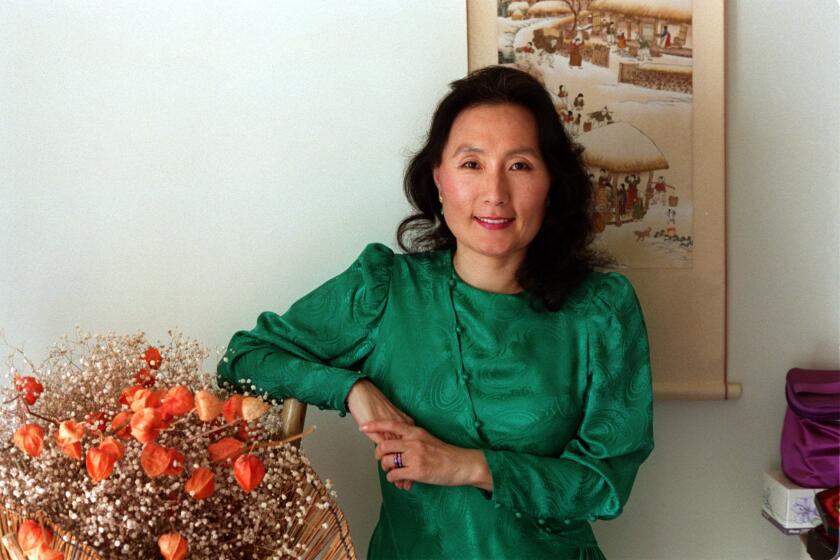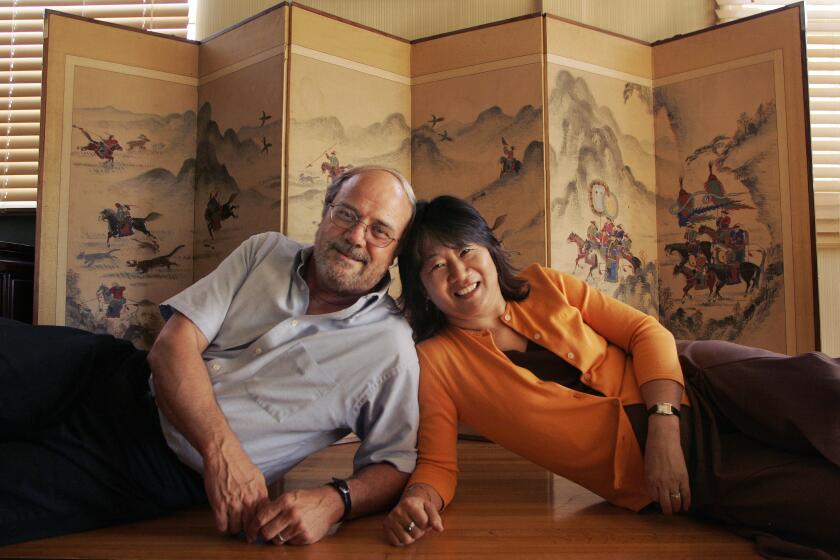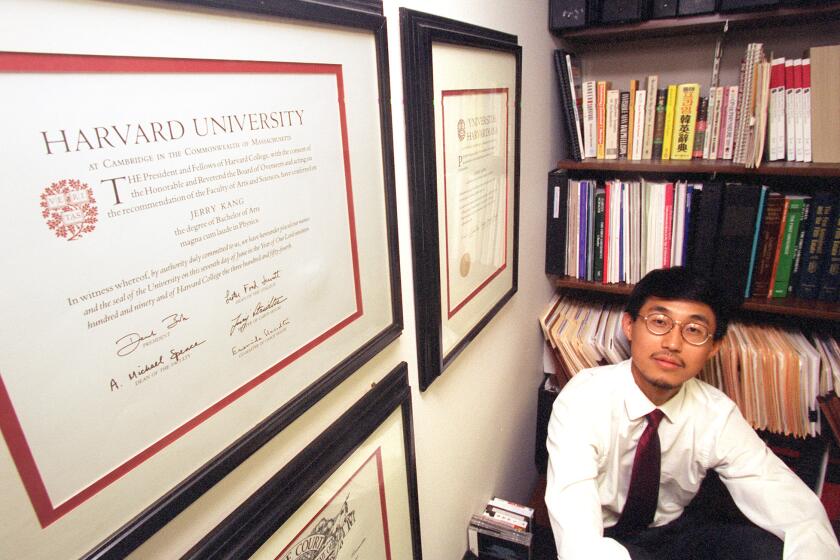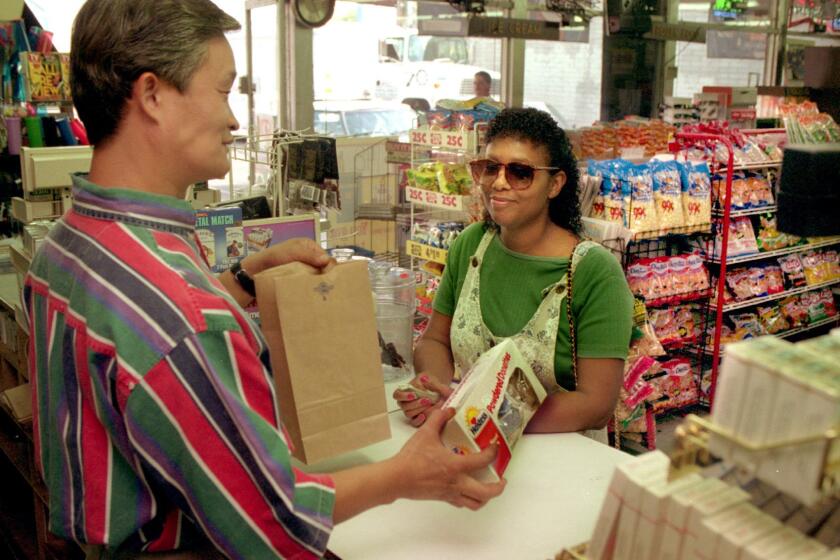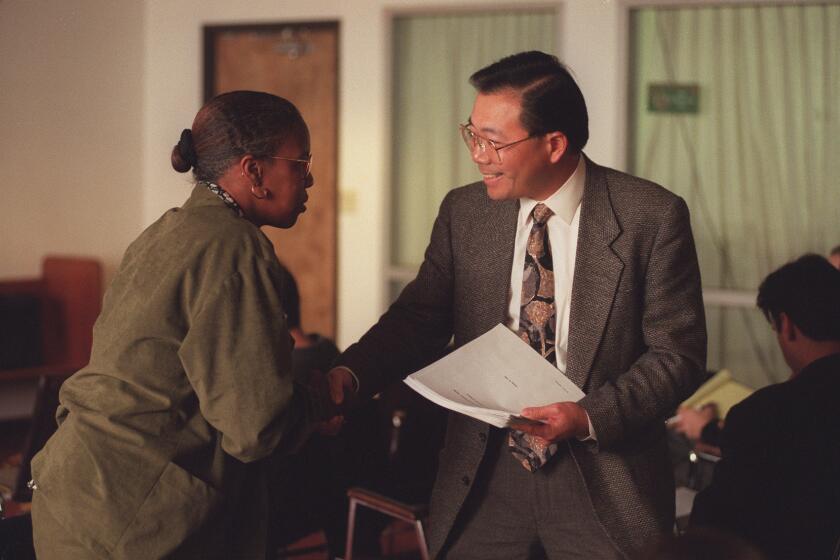Remembering the work of journalist K. Connie Kang
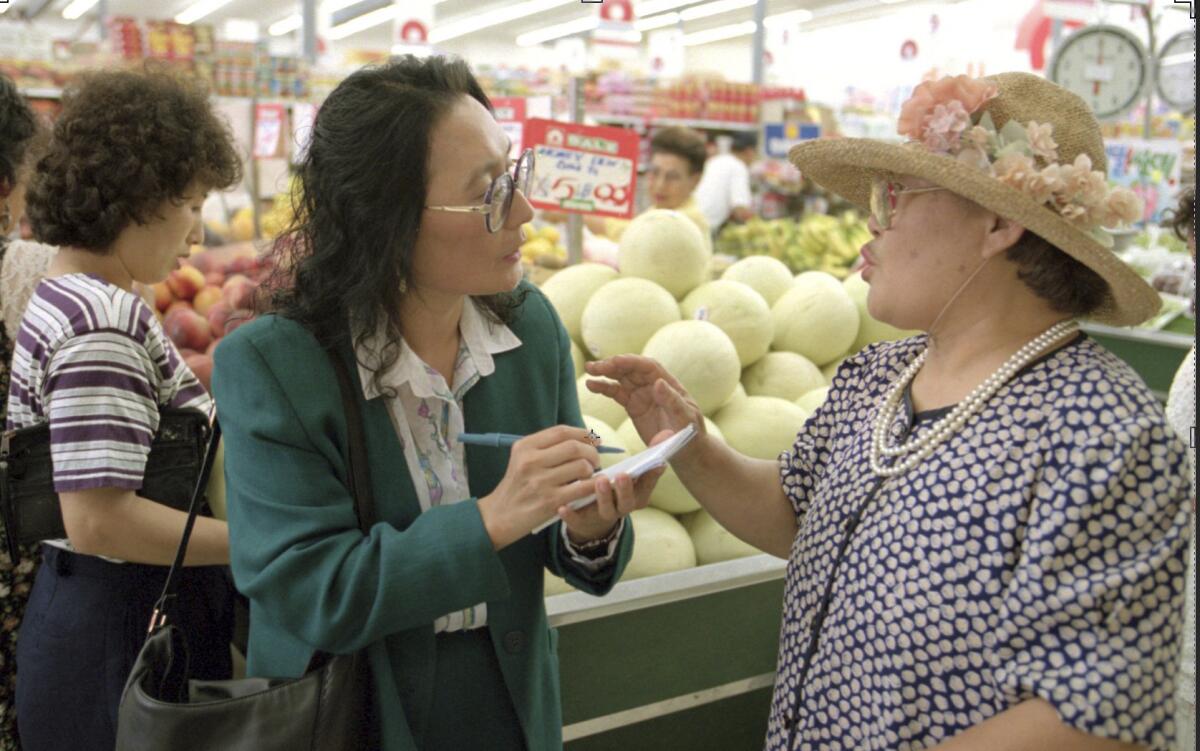
Longtime journalist K. Connie Kang died last week at 76. Kang grew up in Japan after her family fled North Korea, and she is considered the first Korean woman reporter in the United States. She worked for the Times from 1992 to 2008, covering L.A.’s Asian communities and, later, religion.
K. Connie Kang was a meticulous and sensitive observer who covered the city’s Asian communities for the L.A. Times with deep understanding, colleagues said.
A Korean-born reporter’s embrace of an egalitarian English pronoun freed her from the linguistic maze in her native language.
‘Every detail of the Korean War is etched like a newsreel inside my head.’
Koreatown was once the place one left. Now, focused on a shiny strip of Wilshire, it’s a mecca for suburbanites and wealthy immigrants.
Rising Numbers Bring Greater Influence--and Sometimes Greater Problems--for the State’s Asian Americans
The lure of Harvard is irresistible to many immigrant parents. Some go to great lengths to prepare their children for what they see as an automatic key to success.
Korean Americans, devastated by the riots, take lessons on sensitivity and acculturation.
Bringing people together is Stewart Kwoh’s vision, and his talent. With a low-key tenacity, he has opened up opportunities and won changes for Asian Americans.
Asian-Americans have long endured stereotypes. And the struggle to establish an identity apart from their motherlands, and each other, continues--because images of Asians change slowly here, if at all.
Korean laborers taken to Japan in World War II eventually settled in tiny Utoro. Now, facing eviction, they have spent their life savings on a bid to win American support in a fight to save their homes.
